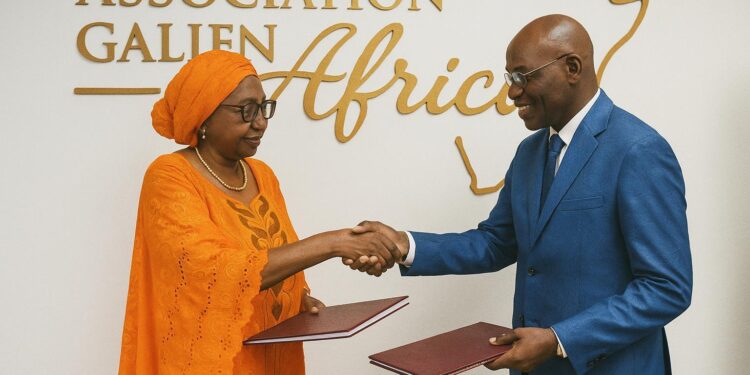Strategic convergence of health and media
The memorandum of understanding inked in Dakar earlier this month binds Galien Africa, custodian of the prestigious Galien Prize, to the African Media Network for Health and Environment (REMAPSEN) for an initial term of twenty-four months, renewable by tacit consent. Though the text focuses on operational collaboration—joint webinars, press briefings and wide-angle coverage of continent-wide health milestones—the symbolic weight is equally significant. In a region where public-health messaging must often travel faster than pathogens, convening biomedical expertise and newsroom reach constitutes a strategic convergence hailed by both signatories as indispensable to resilient governance.
Dakar as emerging hub for health diplomacy
By selecting Senegal’s capital for the signing ceremony, the parties nodded to Dakar’s rising profile in African health diplomacy. The Institut Pasteur de Dakar, the regional offices of Africa CDC and the forthcoming World Bank–supported vaccine facility have collectively positioned the city as a fulcrum between Anglophone and Francophone scientific communities. Senegalese ministers of Health and Environment attended the ceremony, underscoring official endorsement and hinting at synergies with the government’s recent Plan Sénégal Émergent, which accords high priority to preventive medicine and ecological sustainability.
Capacity building for African health journalism
REMAPSEN president Bamba Youssouf emphasised that the accord will translate into concrete support for specialised reporters—workshops on data verification, master classes on One-Health storytelling and facilitated access to peer-reviewed research. Across much of sub-Saharan Africa, overstretched newsrooms face chronic budgetary constraints, often leaving health desks understaffed. By underwriting continuous professional development, Galien Africa seeks to ensure that complex dossiers—from anti-microbial resistance to climate-sensitive vector-borne diseases—are framed with accuracy rather than alarmism, an approach consonant with WHO’s 2022 call for infodemic management.
Environmental dimension and the One Health paradigm
The accord moves beyond narrow biomedical confines by stitching environmental stewardship into the editorial agenda. Professor Awa Marie Coll Seck, chair of Galien Africa and former Senegalese minister of Health, argued that deforestation, pollution and habitat fragmentation increasingly shape epidemiological patterns. Aligning with UNEP’s latest State of Africa’s Environment report, the pact accentuates the One Health paradigm, recognising that the well-being of humans, animals and ecosystems is indivisible—a narrative likely to resonate from Brazzaville, home to the WHO Regional Office for Africa, to the Sahelian frontlines of desertification.
Synergies with continental health architecture
The timing dovetails with the African Union’s 2023–2030 Public Health Strategy, which places communication at the heart of pandemic preparedness. Officials at Africa CDC, speaking on background, view media partnerships as a force multiplier for the still-nascent continental medicines agency. Moreover, the accord’s flagship deliverable—the Galien Africa Prize slated for late October 2025—will showcase advances in therapeutics and diagnostics while granting REMAPSEN editorial primacy. Such visibility could, analysts suggest, fortify Africa’s negotiating posture in global fora addressing intellectual-property waivers and equitable vaccine distribution.
Prospects for renewed multilateral engagement
Diplomats attending the ceremony interpreted the compact as part of a broader recalibration of African soft power, one that leverages narrative control as deftly as it does commodity exports or troop deployments in peacekeeping missions. With Congo-Brazzaville’s own media outlets already syndicating REMAPSEN content, the Brazzaville government stands to benefit from enhanced dissemination of public-health advisories, particularly in coastal regions vulnerable to zoonotic spill-over. Should the pilot phase validate expectations, insiders hint at possible expansion to Lusophone Africa, thereby quilting together a pan-continental information corridor aligned with the Sustainable Development Goals.
A cautiously optimistic outlook
For now, the accord remains a promise on parchment, and its success will hinge on sustained funding, editorial independence and measurable impact indicators. Yet stakeholders exhibit cautious optimism, noting that previous collaborations—such as the 2021 African Vaccination Week media fellowship—demonstrated tangible upticks in evidence-based reporting. In a geopolitical climate where misinformation can erode public trust as swiftly as any fiscal crisis, the Dakar partnership signals that Africa’s public-health community and its fourth estate are willing to shoulder a shared responsibility: transforming reliable information into a preventive tool as vital as any vaccine or clean-water programme.












































